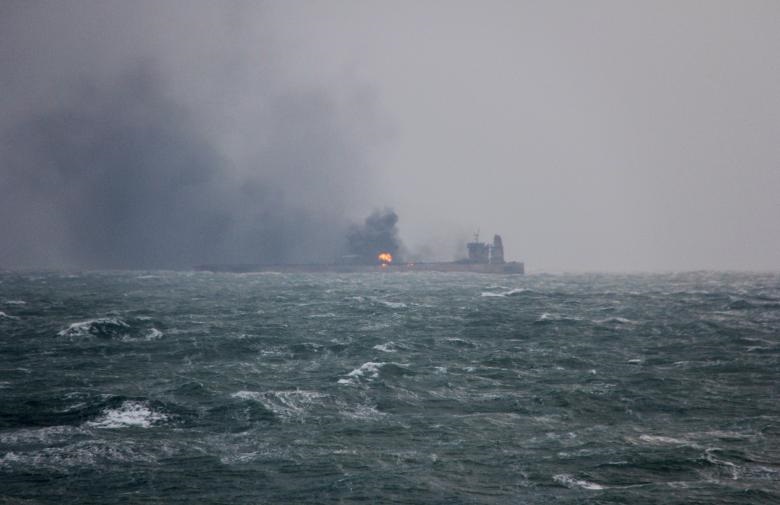
Smoke is seen from Panama-registered Sanchi tanker carrying Iranian oil that caught ablaze after it collided with a Chinese freight ship in the East China Sea. Photo credit: China’s Ministry of Transport.
By Anders Lorenzen
While renewables are continuing to grow in line with rapid electric car uptake we as a world are probably as addicted to oil as ever.
One of the areas where that demand is growing more rapidly than ever is in East Asia. Here a fast-growing middle class demands more and more cars.
But in the early hours of Sunday morning, the environmental cost of that was demonstrated. In a week that has not been good for the Iranian government as public unrest over spending continues to grow, things seem to have gone from bad to worse. An oil tanker carrying Iranian oil collided in the East China Sea off the coast of Shanghai, with a cargo ship carrying grain.
The tanker, registered in Panama, was transporting crude oil from Iran to South Korea and was carrying 136,000 tons of condensate. This is an extra light crude oil and more explosive, and the equivalent of 1 million barrels of oil, and it is worth $60 million based on today’s crude oil prices.
At the time of writing the extent of the damage is still unclear or how much of the spill can be contained. Chinese state media CCTV has released pictures showing the tanker ablaze and emitting plumes of thick dark smoke. It has been reported that 31 crew members are missing and one is dead. A search and rescue mission is underway but is proving difficult due to the conditions.
It is the first major accident involving an Iranian tanker since the international community lifted sanctions on Iran in January 2016 following the Iran nuclear deal.
While both the environmental and economic implications will be huge, the extent will only be known when more info is available, but the disaster has the potential to be the worst since 1991 when 260,000 tonnes of oil leaked off the Angolan coast. The question will again be asked, can the use of oil ever be safe? Questions are also likely to be asked about how such an accident could happen so close to the coast with today’s technologies and communication systems.
And environmentalists will again argue that our transition to a clean energy future cannot happen soon enough.
Categories: energy, environment
3 replies »